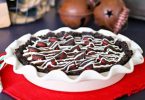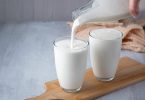While sugar is a key ingredient in baking, its excessive consumption can be harmful. Read on to discover the best alternatives to sugar for your baking needs.

The World Health Organization advises limiting sugar intake to no more than 6 tablespoons daily. Exceeding this can lead to various health issues like obesity, insulin resistance, hypertension, dental problems, and heart diseases.
But this doesn’t mean you have to give up sweet treats. You can either cut down or eliminate sugar, replacing it with healthier alternatives for baking.
We’ve compiled a list of the top sugar substitutes for baking, complete with descriptions and recommended ratios.
First, let’s understand sugar’s role in baking.
Sugar’s Function in Baking
The primary function of sugar is to sweeten baked goods. However, there’s more to it, especially concerning granulated sugar.
Granulated sugar comes from sugar cane or beets and is hygroscopic, meaning it absorbs and retains moisture. This property extends the shelf life of baked items, keeping them fresh. Sugar’s hygroscopic nature also minimizes gluten formation, resulting in softer and more tender pastries.
Sugar also plays a crucial role in the leavening process. When combined with butter, it traps air, which lightens the dough and aids in the expansion of baked goods.

Furthermore, sugar is essential for caramelization, giving baked items their desirable golden-brown hue.
When substituting sugar, these are the properties to consider.
Not every baking sugar substitute is the same; some may sweeten without caramelizing or adding moisture. Choosing the wrong substitute could ruin your baked treats.
Now, let’s explore the best baking sugar substitutes.
Top 9 Healthy Baking Sugar Alternatives
We’ll discuss the finest sugar replacements for baking: honey, stevia, coconut sugar, jaggery, maple and agave syrups, dates, fruit purees and concentrates, erythritol, xylitol, and artificial sweeteners.
Starting with honey.
1. Honey

Honey, a natural and universally loved baking sweetener, can be as sweet or sweeter than sugar, depending on its floral source. It’s loaded with health benefits such as boosting immunity, enhancing sleep, and alleviating allergies.
However, honey can increase blood sugar levels, harm teeth, or contribute to heart issues, as noted in this article.
Calorically, honey is slightly better than sugar: 100g of sugar has 387 calories, while 100g of honey contains 304 calories.
For sugar replacement, use ¾ cup of honey for each cup of sugar. Avoid high-temperature cooking with honey to prevent toxicity; add it towards the end of baking instead.
Next, we’ll discuss stevia.
2. Stevia

Stevia is an excellent sugar alternative for baking, being 200 times sweeter than sugar in equivalent amounts. A small amount is enough for a sweet taste.
Stevia offers health benefits like being ideal for diabetics, as it doesn’t affect blood sugar levels. It also helps lower blood pressure and stabilize sugar levels.
Unlike honey, stevia withstands high temperatures well, so it can be added at the beginning of your baking process.
While sugar contains 387 calories per 100g, stevia has zero calories, making it perfect for keto and other diets.
Replace sugar with stevia using 1/4 or 1/8 cup of stevia per cup of sugar.
Now, let’s consider coconut sugar.
3. Coconut Sugar

Coconut sugar, derived from coconut palm flowers, is a superb sugar substitute for baking, offering a delightful aroma and flavor similar to brown sugar.
It has a low glycemic index and is rich in nutrients like zinc, potassium, calcium, and iron.
However, it’s only marginally less caloric than sugar: 100g of sugar has 387 calories, and 100g of coconut sugar contains 375 calories.
For substitution, use a 1:1 ratio of coconut sugar to sugar.
Next, let’s delve into jaggery.
4. Jaggery

Jaggery, also known as palm or cane sugar, is an unrefined form of sugar rich in nutrients like calcium, iron, magnesium, and potassium.
It sweetens as effectively as table sugar and adds a caramel flavor to pastries.
Calorie-wise, jaggery is similar to sugar: 100g of sugar has 387 calories, and 100g of jaggery contains 383 calories.
Use a 1:1 ratio for substituting sugar with jaggery. Due to its moisture content, reduce the water in your recipe by 2-3 tablespoons.
Finally, let’s explore maple and agave syrups.
5. Maple and Agave Syrups

Maple and agave syrups are both excellent alternatives to sugar in baking, offering heat resistance, health benefits, and rich flavor.
Maple syrup, sourced from maple tree sap, has a honey-like liquid consistency. Agave, although different, shares a similar sugary, sticky liquid form.
Calorie-wise, they are healthier than sugar: 100g of sugar contains 387 calories, while 100g of agave syrup has 310 calories and 100g of maple syrup has 260 calories.
When substituting sugar with these syrups, use ¾ cup of syrup for every cup of sugar and reduce other liquids in the recipe by 3 tablespoons.





